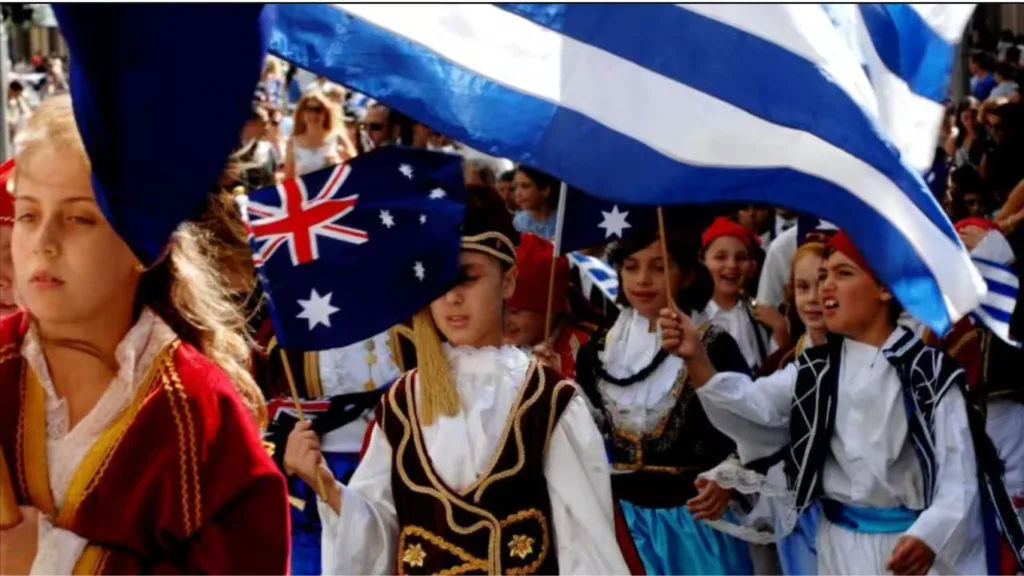By Anastasios M. Tamis*
Thirty years ago, in research and publications, I argued that after 2035, the communities of Greeks in Australia will have completed their first cycle and will be led to another long period, of regrouping and readjustment, which will not have the characteristics of settlement and development, as we know them. This conclusion was not the fruit of a psychic or a prophet of decline. It was the product and outcome of scientific and documented analysis of the data and was based on the analysis of the basic socio-economic variables of Hellenism.
Social structures and their state, in a specific time and space, are measured by independent, as well as dependent variables, and changes that occur or can be mitigated, depending on the data that constitute a group, which in our case is that of Greek Australians.
Let us be more specific about where the findings and speculations of the change that lead precisely, in eleven years, to the community were based and are being based. Of course, we will not have a dissolution of Hellenism; the existing communal thrust will not be levelled and the systems of containment and support of Hellenism, will continue to operate. What is certain is that, after 2035, the shrinkage and decline of institutions, as they were created in the 1960s and 1970s, will be catalytic and irreversible. This is because we have not anticipated the tremendous change that awaits us, as a structured Diaspora. We have not created cohesion and restraint mechanisms, nor wheels and safety belts that could correct the situation. The Greek communities will look like the “crazy truck”, running downhill with the brakes broken.

During the period 1946-1976, 270,000 Greeks and Cypriots arrived in Australia and were united, under difficult intra-communal conditions and discriminations, with the Greeks of the pre-war period who numbered 14,000. Prejudices and serious differences have arisen between the old and new settlers, resulting in new immigrants being distanced or even excluded from the manifestations and tolerance of the old. Pre-war families were conservative, ecclesiastical-centric, integrated into the Australian social fabric, committed and bigoted to the way of life of the society in which they lived.
The new immigrants, emerging from the spectrum of a perpetual war from 1940 to 1949, were overworked, had lived through the torment of civil war, were progressive and demanded radical changes, as well as their own organisation. The distancing of the two elements/currents did not allow the expected cooperation and cohesion of Hellenism and prevented mechanisms of union or joint action. This rupture continued in various forms until the early 1970s, often even provoking the intervention of the consular authorities and the Church, as well as the Greek-language newspapers, which highlighted the division.
In our days and in the next ten years, the difficult years of the next decade, Hellenism and its organised community organisations will face the adverse demographic consequences. In the meantime, ethnologists, anthropologists, aspiring historians of Hellenism, chroniclers, journalists, sociologists, leaders of Hellenism, community and ecclesiastical leaders, will attempt their own speculations, will approach the problem of 2035, each with its own typology, its own ideology, its own interpretation.
However, despite the inexorable reality of numbers, the changing demographic characteristics, the impacting demographic changes and the biological death of the first generation of Greek immigrants, who had laid the foundations and lifted on their shoulders what constitutes today, the political rulers in Greece remain pressing and unyielding, continuing to falsely refer “to a thriving Hellenism of Australia.” Naturally, they fail to define what they think is thriving? If they mean the socio-economic integration of Hellenism, its successful networking, its economic development, its political integration, they owe this almost exclusively to the Greek immigrants of the first generation. This progress was created and sustained by the young immigrants, children of the 1950s and 1960s, who worked and sacrificed themselves so that their children and grandchildren today have the prosperity and success they enjoy.
The vast majority of established factories, restaurants and hospitality units, industries, sources of wealth were achieved by first-generation Greek immigrants and less by their Australian-born successors. The immigrants of the first generation, the brilliant proletarians, herders and peasants, who sought fate under the sun of Australia, were the ones who built the churches of Orthodoxy, the ones who supported their priests and hierarchs. They organised their unions and communities, they supported the teaching and learning of their language. On their shoulders fell the national issues of Hellenism; in the streets of Australian cities fought the Cypriot, Macedonian, Epirotes, and the Dodecanese national issues, promoting the unredeemed historical, political and cultural values.
It was the Greek immigrants of the first generation who took to the streets to claim equality in Australia in order to defeat prejudice and racism. They were the ones who faced the contempt of the racist, xenophobic and ignorant Australian, who could not make more positive use of the presence of the immigrant. It was the Greeks of the first generation who put their successors, their children, in the parliaments of Australia, who were elevated to become parliamentarians and senators, who were distinguished as ministers and great directors and composers and academics and researchers and doctors and judges. They owe all their successes to their parents, as well as to the sacrifices of all the Greek immigrants of the first generation, who, as successors, deservedly honoured the memory of their parents. They were the women, mothers of first-generation immigrants who suffered in the factories, who bled in the kitchens of restaurants and working alternating “shifts” with their husbands and raised their children with sacrifices.
However, in 2035, these first-generation Greeks, the pioneers and creators of Australian Hellenism will not be around. They will not be among their successors to show them the way, to admonish them and to advise them.
Next week, I will refer with official and scientific data what awaits Hellenism in Australia in the years after 2035, and why I set 2035 as the limit. Two more articles will follow on the consequences of the biological exodus of first-generation Greek immigrants.
*Professor Anastasios M. Tamis taught at Universities in Australia and abroad, was the creator and founding director of the Dardalis Archives of the Hellenic Diaspora and is currently the President of the Australian Institute of Macedonian Studies (AIMS).
